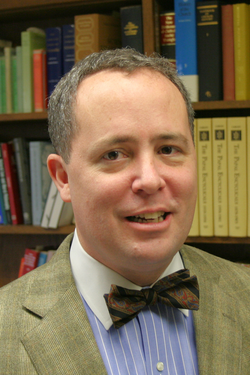
Editor’s Note: The following paper was printed in the website for The Social Science Research Network. It has been reprinted here with the permission of the author Professor Patrick McKinley Brennan.
Abstract: This paper argues that questions about "religious freedom" must be subordinated to the fundamental principle of the liberty of the Church, libertas Ecclesiae. The First Amendment's agnosticism with respect to the liberty of the Church is not ultimately normative. Catholics and others who merely seek religious "accommodation," as with the HHS mandate, for example, are agents of a status quo that illegitimately has comfortable self-preservation as its highest value. It is Catholic doctrine that "creation was for the sake of the Church," not for the sake of, say, religious freedom. The paper argues that the contingent constitution of the state must conform itself to the given constitution of the Church. It is a matter of divine right that the purpose of creation itself be respected in law. The Second Vatican Council's Declaration on Religious Freedom, Dignitatis Humanae (1965), requires, as Catholic doctrine always has, that the state promote acts of true religion -- not merely "freedom" -- as part of its duty to promote the common goods, both natural and supernatural. While it would be a gross injustice to force a person to embrace the Catholic religion, the Catholic religion is entitled to be the religion of the state in a Catholic society. Pace the views of many contemporary Catholics, Catholic doctrine does not bless settling for constitutional agnosticism.
 RSS Feed
RSS Feed
